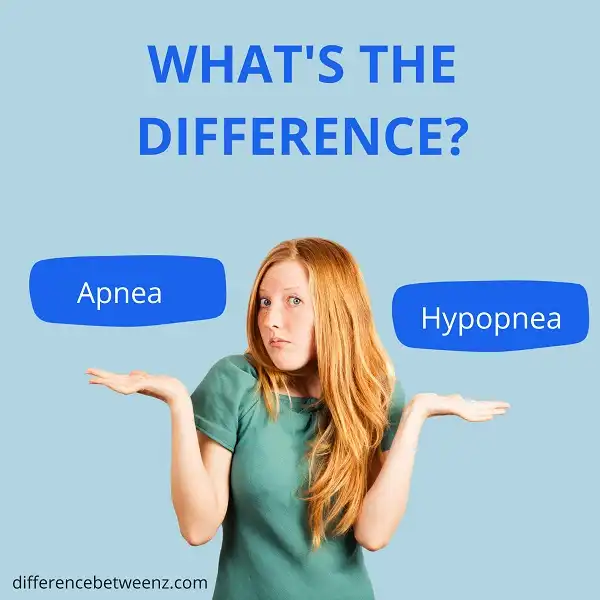Are you struggling to understand the difference between apnea and hypopnea? If so, you’re not alone. In fact, these two terms are often confused with one another. However, understanding the difference is crucial for anyone affected by sleep apnea or hypopnea. This article will clear up any confusion and provide a comprehensive overview of both conditions. So, let’s get started!
What is Apnea?
- Apnea is a medical condition in which breathing is interrupted during sleep. The word apnea comes from the Greek word “without breath.” There are three types of apnea: central, obstructive, and mixed. Central apnea occurs when the brain does not send the correct signals to the muscles that control breathing.
- Obstructive apnea happens when there is an obstruction in the airway, such as when the tongue falls back into the throat or the throat muscles relax. Mixed apnea is a combination of both central and obstructive apnea.
- Apnea can lead to serious health problems, including high blood pressure, heart disease, strokes, and even death. Treatment for apnea often includes lifestyle changes, such as losing weight and sleeping on your side, as well as using a Continuous Positive Airway Pressure (CPAP) machine.
What is Hypopnea?
Hypopnea is a medical condition in which there is shallow breathing or a decrease in the volume of each breath. Hypopnea can occur when someone is awake or asleep. When it happens during sleep, it is called sleep apnea. Hypopnea may be caused by a variety of factors, including obesity, smoking, nasal congestion, and heart failure. It can also be a side effect of certain medications. Treatment for hypopnea typically involves lifestyle changes, such as losing weight or quitting smoking. In some cases, Hypopnea may also be treated with CPAP (continuous positive airway pressure) or surgery.
Difference between Apnea and Hypopnea
- Apnea and hypopnea are both types of breathing disorders. Apnea is characterized by pauses in breathing, while hypopnea is characterized by shallow or abnormally slow breathing. Both apnea and hypopnea can lead to difficulty breathing and low oxygen levels in the blood. Apnea is often caused by obstruction of the airway, such as during sleep.
- Hypopnea can be caused by a variety of factors, including a weak diaphragm, poor lung function, or heart failure. Apnea and hypopnea are both serious medical conditions that can be life-threatening.
- Treatment typically involves the use of positive airway pressure (PAP) devices or continuous positive airway pressure (CPAP) machines. These devices help to keep the airway open and improve breathing.
Conclusion
Though apnea and hypopnea are related, they are two separate conditions. It’s important to know the difference so you can get the help you need if you’re experiencing one of these conditions.


